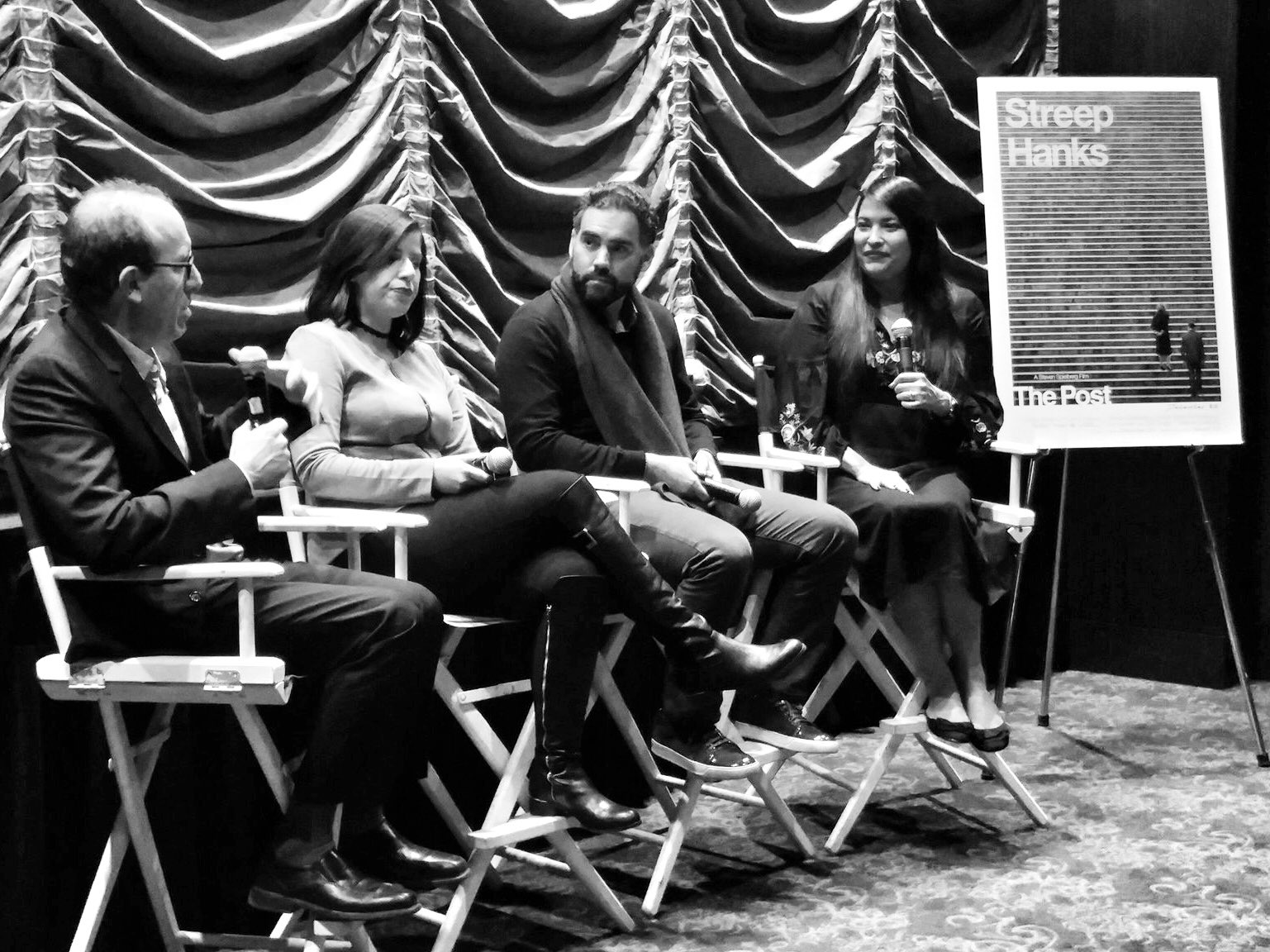Words by Nick Slay
This week the National Asssociation of Hispanic Journalists invited local college chapters for a special pre-screening of Tom Hanks & Meryl Streep’s, The Post. A movie that eerily echoes similar struggles the press is facing in the wake of the Trump Administration and presidency.
If you’re fuzzy on your history (and let’s face it since there isn’t a social studies pop quiz Monday you might be) this movie discusses the details surrounding the Vietnam War and the Nixon White House. Most namely the Pentagon Papers and Vietnam.
The abridged version of this historical drama set in the 1970’s is about how the Washington Post backed up the NY Times in its release of a United States Department of Defense history of the United States’ political-military involvement in Vietnam from 1945 to 1967. The papers were released by Daniel Ellsberg, in 1971 and that the Johnson Administration “systematically lied, not only to the public but also to Congress.” Following the trend of presidents before him up to Nixon, that the Vietnam War was a war we could not win.
The significance of this moment in history lies in that The Supreme Court in a 6-3 decision defended the press’ freedom of speech calling it the 4th Estate to be the watch dog of the 3 branches of U.S. government.
The panel gathered:
Charo Henriquez – Sr. Editor of the NY Times
Carolina Moreno – Reporter for Huffpost Latino Voices
Enrique Acevedo – Anchor of Univision News
Joel Simon – Exec. Dir. Committee to Protect Journalists
Among several of the topics discusses such as; content vs. reporting; the voice of Latin people and women in news media; most arguably freedom of the press. This rings especially true in the ‘Trump Era’ of Fake News. This even prompted Tom Hanks to make a statement as reported by Buzzfeeed that he wouldn’t attend a White House screening of the movie if he was invited by President Trump.
Tom Hanks says he’ll skip a White House screening of “The Post” if Trump invites him.
"Our personal choices are going to have to reflect our opinions.”https://t.co/s1nqvPkIXh
— BuzzFeed News (@BuzzFeedNews) December 21, 2017
Some notable sentiments by the panel echo the sentiment of the importance of the Press during this administration and news rooms needing the support of their editors and owners. This draws especially close to premise of the film that centered around the relationship between Post owner Kay Graham and editor Ben Bradlee. This follows her controversial decision at the time to publish their copies of the Pentagon Papers when Nixon had already filed a motion against the NY Times for potentially committing treason in releasing state secrets. At the time the Press viewed it as censorship portraying President Nixon as a president willing to censor the Press when he disagreed or disliked what they reported. A similar take on the now strenuous relationship between Trump and CNN. The panelists took to Twitter to share their thoughts with the public at large.
"This is why this movie really touched me; it speaks to us as journalists and why we do what we do." – @CaritoJuliette, @HuffPost @LatinoVoices #ThePostMovie pic.twitter.com/aCupjTowup
— NAHJ (@NAHJ) December 21, 2017
Following screening of #ThePostMovie, witnessing Spielberg's portrayal of a relationship between publisher and executive editor… @EnriqueAcevedo, @UniNoticias asks @Joelcpj, @pressfreedom how much decision making power do publishers really have in editorial these days? pic.twitter.com/uW9Zy47jAi
— NAHJ (@NAHJ) December 21, 2017
"They might not be outside like in the movie w/ signs that say ‘Free Press’ but in our case we see the volume of subscriptions, connection to our audience, how people are supporting in the quality of reports. That to me represents trust." – @charohenriquez, @nytimes #ThePostMovie pic.twitter.com/TdzN3F3CaA
— NAHJ (@NAHJ) December 21, 2017
"Freedom of the press is something you have to actively fight for every day, it never stops." – @Joelcpj, @pressfreedom #ThePostMovie #LibertaddePrensa pic.twitter.com/5mjTzUMyPW
— NAHJ (@NAHJ) December 21, 2017
